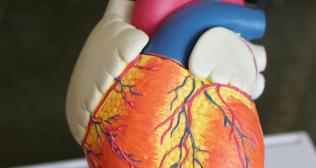
Support Specialties
Neurocritical Care: A Blessing
Dr. Hari Hara Dash Sep 28, 2015
Neurocritical care has reduced the length of stay of critically ill neuro patients with great cost savings. This has improved documentation, good clinical research and increased organ and tissue donation. Neurocritical Care is nothing but specialised and dedicated care given by a team to critically ill neuro patients, be a neurological or a neurosurgical case. The diagnosis of certain critical neurological illnesses are often missed in the general Intensive Care Unit (ICU) which results in undue delay in providing appropriate management. The cumulative
experience involving large number of patients suggest that specialised neurocritical care units are associated with decreased mortality and improved neurological outcome.
WHY IS IT DIFFERENT?
Specific nuances that are important to neurocritical care patients may sometimes be under recognised in general Intensive Care Unit (ICU). Invariably, there is difficulty in quantifying the effect of serious neurological conditions. Prevention of secondary neuronal injury is of paramount importance, which is diagnosed early and better managed in a neurocritical care unit. Neurogenic pulmonary oedema and neurogenic stunned myocardium may be confusing. Systemic complications are frequently under recognised. Special neuromonitoring can be of great help in certain situations.
MANAGEMENT STRATEGIES
It is now well documented that patients with acute stroke and subarachnoid haemorrhage patients are best managed in the neurocritical care units. Fluid therapy is highly restrictive in a general ICU but in a neurocritical unit the physicians believe in positive balance as the neuro patients are dehydrated due to vomiting, diuretic therapy and different dye studies.
Dyselectrolytemia is another condition which also creates confusion amongst general ICU physicians resulting in unnecessary delay in instituting appropriate therapy.
Infective disorders of the central nervous system are invariably misdiagnosed and treated as pyrexia of unknown origin. Delay in diagnosing intracerebral vasospasm following aneurysm clipping or coiling increases the morbidity and mortality of such patients. Similarly immediate post-operative deterioration of a craniotomy patient (haematoma, hydrocephalus and tension pneumocephalus) has to be diagnosed promptly and managed as early as possible. Management of barbiturate coma (a barbiturate induced coma is a temporary coma brought on by a controlled dose of a barbiturate drug) following severe head injury or status epilepticus can best be achieved in a neurocritical unit.
Neurocritical Care is nothing but specialised and dedicated care given by a team to critically ill neuro patients, be a neurological or a neurosurgical case. The diagnosis of certain critical neurological illnesses are often missed in the general Intensive Care Unit (ICU) which results in undue delay in providing appropriate management. The cumulative
experience involving large number of patients suggest that specialised neurocritical care units are associated with decreased mortality and improved neurological outcome.
WHY IS IT DIFFERENT?
Specific nuances that are important to neurocritical care patients may sometimes be under recognised in general Intensive Care Unit (ICU). Invariably, there is difficulty in quantifying the effect of serious neurological conditions. Prevention of secondary neuronal injury is of paramount importance, which is diagnosed early and better managed in a neurocritical care unit. Neurogenic pulmonary oedema and neurogenic stunned myocardium may be confusing. Systemic complications are frequently under recognised. Special neuromonitoring can be of great help in certain situations.
MANAGEMENT STRATEGIES
It is now well documented that patients with acute stroke and subarachnoid haemorrhage patients are best managed in the neurocritical care units. Fluid therapy is highly restrictive in a general ICU but in a neurocritical unit the physicians believe in positive balance as the neuro patients are dehydrated due to vomiting, diuretic therapy and different dye studies.
Dyselectrolytemia is another condition which also creates confusion amongst general ICU physicians resulting in unnecessary delay in instituting appropriate therapy.
Infective disorders of the central nervous system are invariably misdiagnosed and treated as pyrexia of unknown origin. Delay in diagnosing intracerebral vasospasm following aneurysm clipping or coiling increases the morbidity and mortality of such patients. Similarly immediate post-operative deterioration of a craniotomy patient (haematoma, hydrocephalus and tension pneumocephalus) has to be diagnosed promptly and managed as early as possible. Management of barbiturate coma (a barbiturate induced coma is a temporary coma brought on by a controlled dose of a barbiturate drug) following severe head injury or status epilepticus can best be achieved in a neurocritical unit.
 Neurocritical Care is nothing but specialised and dedicated care given by a team to critically ill neuro patients, be a neurological or a neurosurgical case. The diagnosis of certain critical neurological illnesses are often missed in the general Intensive Care Unit (ICU) which results in undue delay in providing appropriate management. The cumulative
experience involving large number of patients suggest that specialised neurocritical care units are associated with decreased mortality and improved neurological outcome.
WHY IS IT DIFFERENT?
Specific nuances that are important to neurocritical care patients may sometimes be under recognised in general Intensive Care Unit (ICU). Invariably, there is difficulty in quantifying the effect of serious neurological conditions. Prevention of secondary neuronal injury is of paramount importance, which is diagnosed early and better managed in a neurocritical care unit. Neurogenic pulmonary oedema and neurogenic stunned myocardium may be confusing. Systemic complications are frequently under recognised. Special neuromonitoring can be of great help in certain situations.
MANAGEMENT STRATEGIES
It is now well documented that patients with acute stroke and subarachnoid haemorrhage patients are best managed in the neurocritical care units. Fluid therapy is highly restrictive in a general ICU but in a neurocritical unit the physicians believe in positive balance as the neuro patients are dehydrated due to vomiting, diuretic therapy and different dye studies.
Dyselectrolytemia is another condition which also creates confusion amongst general ICU physicians resulting in unnecessary delay in instituting appropriate therapy.
Infective disorders of the central nervous system are invariably misdiagnosed and treated as pyrexia of unknown origin. Delay in diagnosing intracerebral vasospasm following aneurysm clipping or coiling increases the morbidity and mortality of such patients. Similarly immediate post-operative deterioration of a craniotomy patient (haematoma, hydrocephalus and tension pneumocephalus) has to be diagnosed promptly and managed as early as possible. Management of barbiturate coma (a barbiturate induced coma is a temporary coma brought on by a controlled dose of a barbiturate drug) following severe head injury or status epilepticus can best be achieved in a neurocritical unit.
Neurocritical Care is nothing but specialised and dedicated care given by a team to critically ill neuro patients, be a neurological or a neurosurgical case. The diagnosis of certain critical neurological illnesses are often missed in the general Intensive Care Unit (ICU) which results in undue delay in providing appropriate management. The cumulative
experience involving large number of patients suggest that specialised neurocritical care units are associated with decreased mortality and improved neurological outcome.
WHY IS IT DIFFERENT?
Specific nuances that are important to neurocritical care patients may sometimes be under recognised in general Intensive Care Unit (ICU). Invariably, there is difficulty in quantifying the effect of serious neurological conditions. Prevention of secondary neuronal injury is of paramount importance, which is diagnosed early and better managed in a neurocritical care unit. Neurogenic pulmonary oedema and neurogenic stunned myocardium may be confusing. Systemic complications are frequently under recognised. Special neuromonitoring can be of great help in certain situations.
MANAGEMENT STRATEGIES
It is now well documented that patients with acute stroke and subarachnoid haemorrhage patients are best managed in the neurocritical care units. Fluid therapy is highly restrictive in a general ICU but in a neurocritical unit the physicians believe in positive balance as the neuro patients are dehydrated due to vomiting, diuretic therapy and different dye studies.
Dyselectrolytemia is another condition which also creates confusion amongst general ICU physicians resulting in unnecessary delay in instituting appropriate therapy.
Infective disorders of the central nervous system are invariably misdiagnosed and treated as pyrexia of unknown origin. Delay in diagnosing intracerebral vasospasm following aneurysm clipping or coiling increases the morbidity and mortality of such patients. Similarly immediate post-operative deterioration of a craniotomy patient (haematoma, hydrocephalus and tension pneumocephalus) has to be diagnosed promptly and managed as early as possible. Management of barbiturate coma (a barbiturate induced coma is a temporary coma brought on by a controlled dose of a barbiturate drug) following severe head injury or status epilepticus can best be achieved in a neurocritical unit.
Categories
Clear allMeet the doctor

Dr. Hari Hara Dash
EMERITUS CONSULTANT | Fortis Gurgaon
- Support Specialties | Anaesthesia
-
40 Years
-
1500










